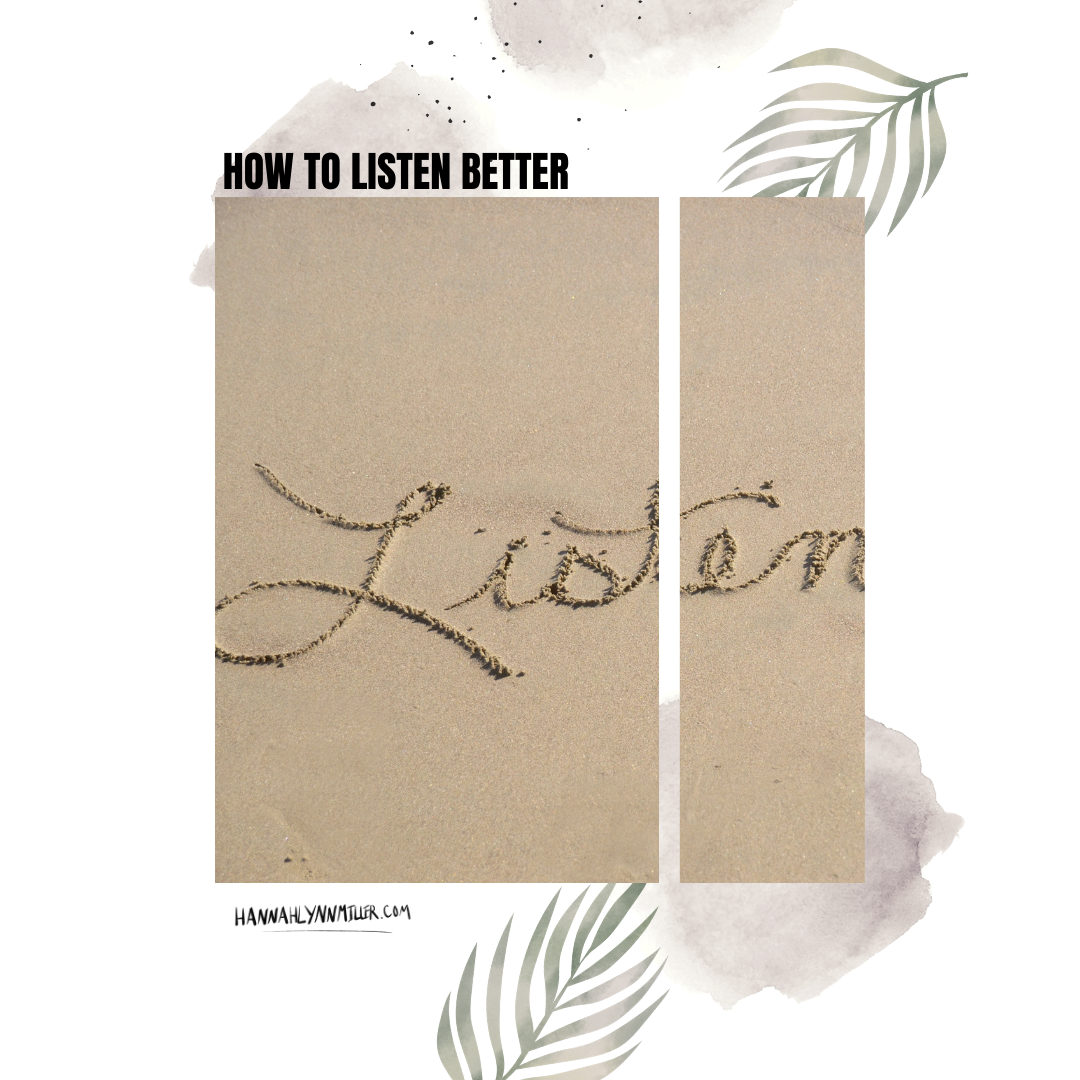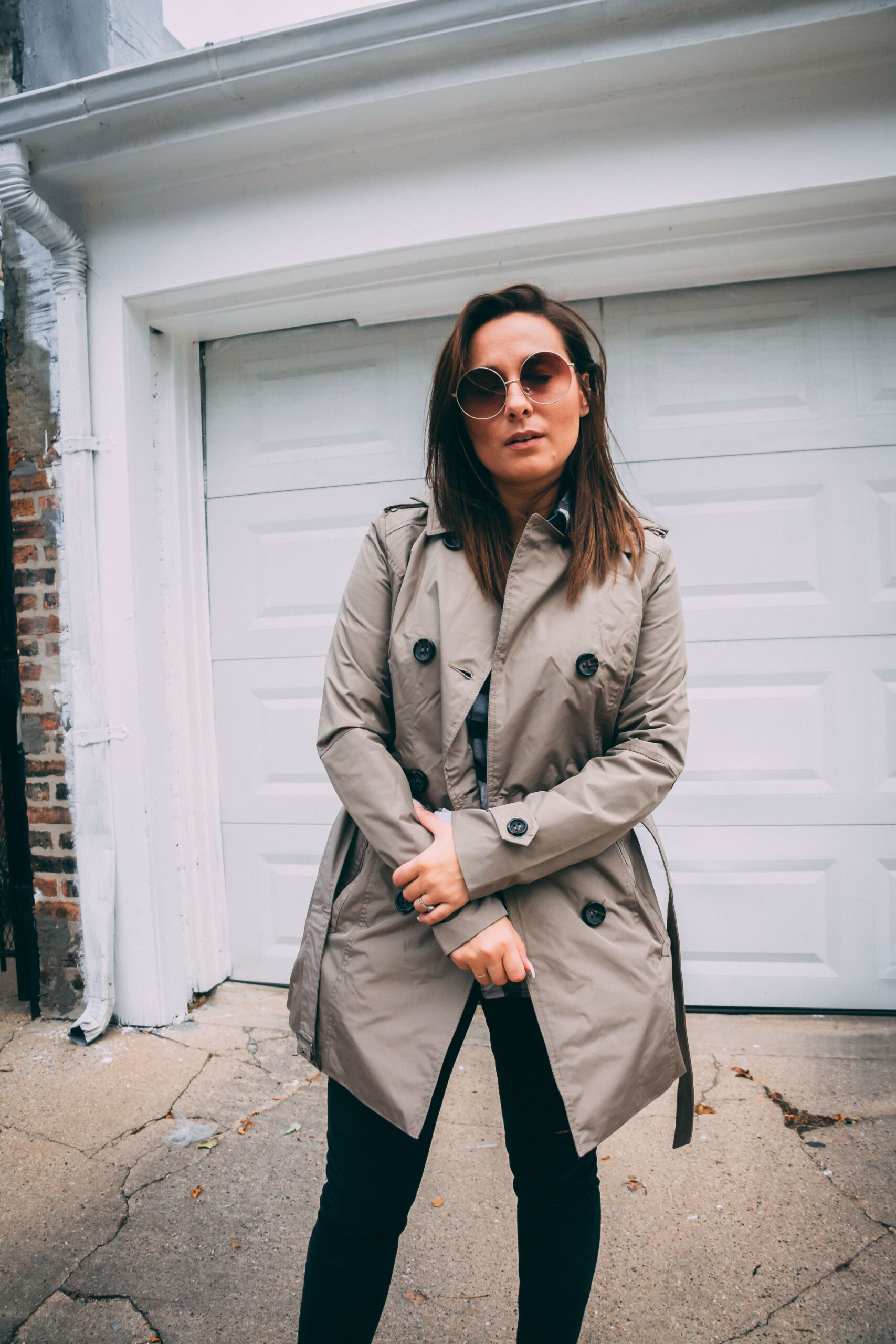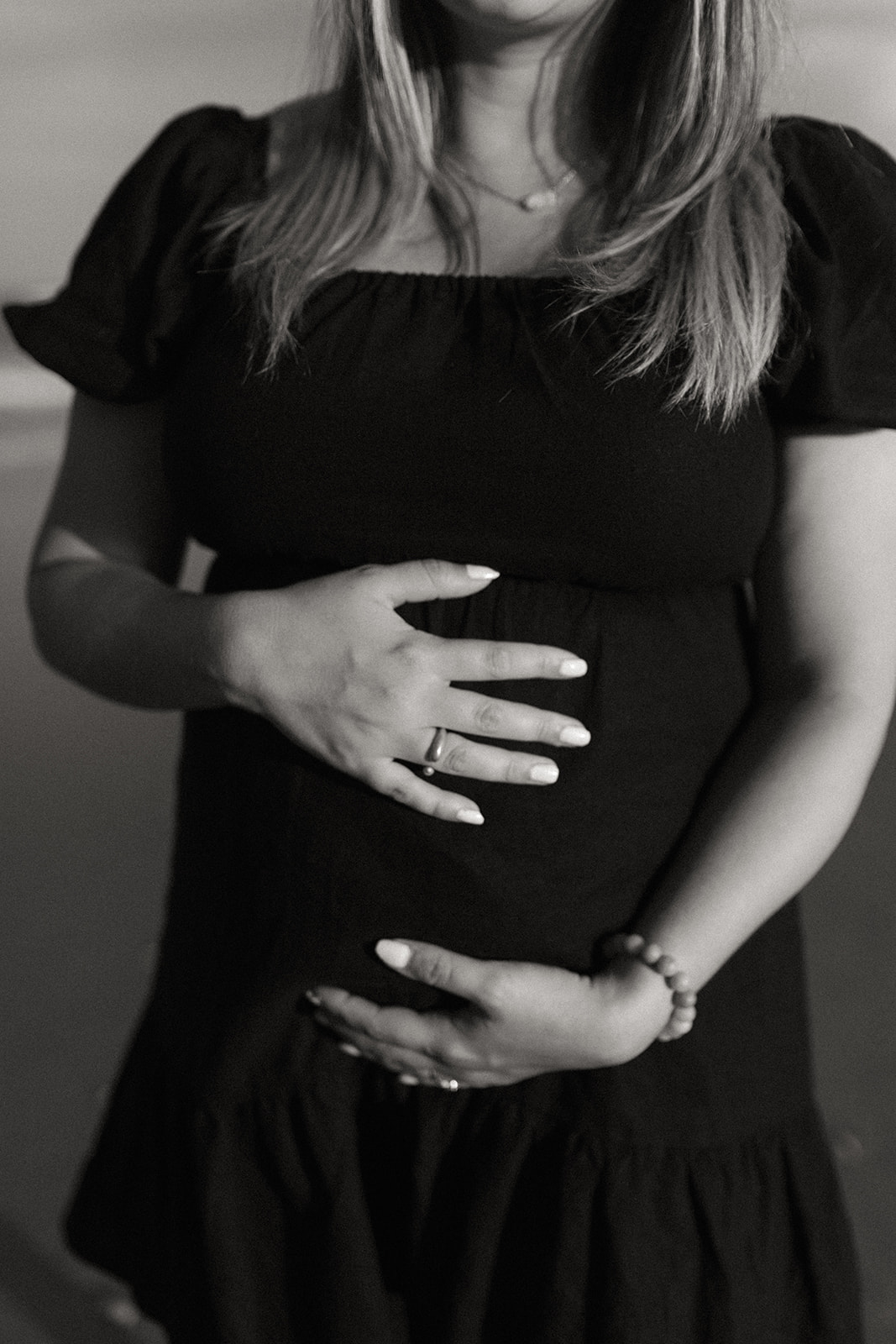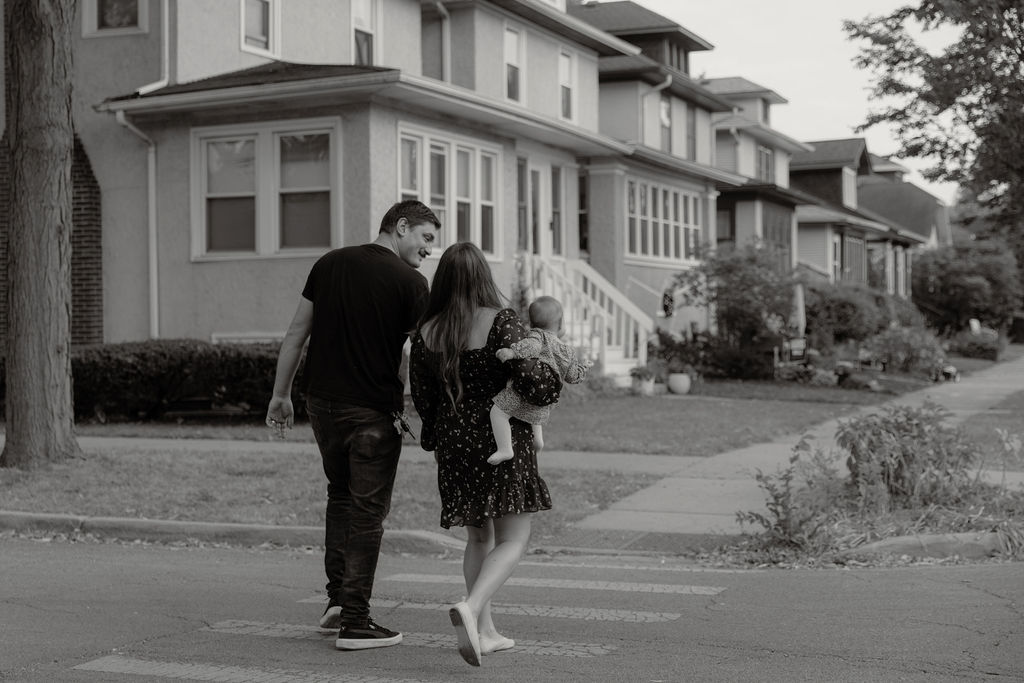Three Ways To Listen Better

Have you ever talked to someone and been painfully aware that they aren’t really listening to what you are saying? It’s extremely annoying. And we’ve all been on the receiving end. My husband knows that if this happens to me I start shutting down. Listening poorly is a serious relationship killer. I would say it’s a sign of disrespect. Proverbs 18:13 says that talking before we listen actually makes us look foolish.
If one gives an answer before he hears, it is his folly and shame.
Proverbs 18:13
I’ve been on the opposite end too. I’ve been tired and stressed and found it extremely difficult to focus on what the person is saying. If I am dealing with a lot emotionally in my personal life I have a hard time listening to a person’s story if there’s any type of emotion in it. Knowing this means I need to really practice self-care so that I can empathize when others are needing someone to listen to. I will take time alone and journal, I have a “prayer hallway” that I spend time in, and lately I’ll find so much joy and self-care in picking out my outfit for the next day. I need to do these things because listening well is hard, but it’s also so so so powerful. It sounds so easy and simple, but it’s not. Some days are easier than others. Understanding where you’re at emotionally is so important so that you can bring healing in your relationships.
The term for listening well or striving to be respectful and add value to the other person is called “active listening”. God gave us a healing power to help eachother out when we experience stress… it’s called listening. I love talking about listening because I think it is a lost skill. Between being distracted with our phones, tv watching, and a culture of productivity, listening gets lost in the noise. According to an article in the Journal of Family Psychology, The Power of Listening: Lending an Ear to the Partner During Dyadic Coping Conversations attentive listening during stress will help couples feel more connected and satisfied in their relationship.
“Attentive listening while the other partner expressed stress was significantly linked with better coping abilities and higher relationship satisfaction.”
Journal of Family Psychology
When I think of a good way to illustrate what active listening looks like I think of my google device, Alexa. My Alexa is a better listener than I am. Here’s what I mean. My Alexa does something that counselors do in sessions called reflecting or mirroring or simply repeating back what the other person says. You tell Alexa something and she repeats back what you’ve said just to make sure she’s got it. I used to think that being a good mental health counselor meant I had good things to say. Actually, being a counselor takes being a good listener. Being a good listener takes skill!
Ok, we’ve established a few things here. First, that it feels really horrible when you’re not being listened to. Proverbs says that it actually makes us look foolish when we don’t fully listen to others before we speak. It’s important to self-care so that we can listen better without being distracted with stress. Listening well not only gives value to another person, there’s also a healing power in listening well. That’s why counseling is an entire profession. Active listening is needed in any healing process. When you listen better in your relationships you actually build stronger relationships. So now we know that listening is important! Lastly, but not least, listen like Alexa. Repeat back what the other person said just to make sure you got it right.
Here’s a few tips on how to listen better:
- Ask questions that would promote a response that is more than a yes or no answer. These types of questions are called “open ended question”
- Show interest in what the other person is saying through nonverbal body language. This is called back channeling. This looks like nodding and saying things like “mhmm” or “yeah”.
- Actively listen. This means repeat back to the other person what they said to make sure you heard right. Rephrase, paraphrase and repeat back. Just like your Alexa.
Try this in your conversations with others. See what happens.
Resources
Kuhn, R., Bradbury, T. N., Nussbeck, F. W., & Bodenmann, G. (2018). The power of listening: Lending an ear to the partner during dyadic coping conversations. Journal of Family Psychology, 32(6), 762–772. https://doi-org.chilib.moody.edu/10.1037/fam0000421









